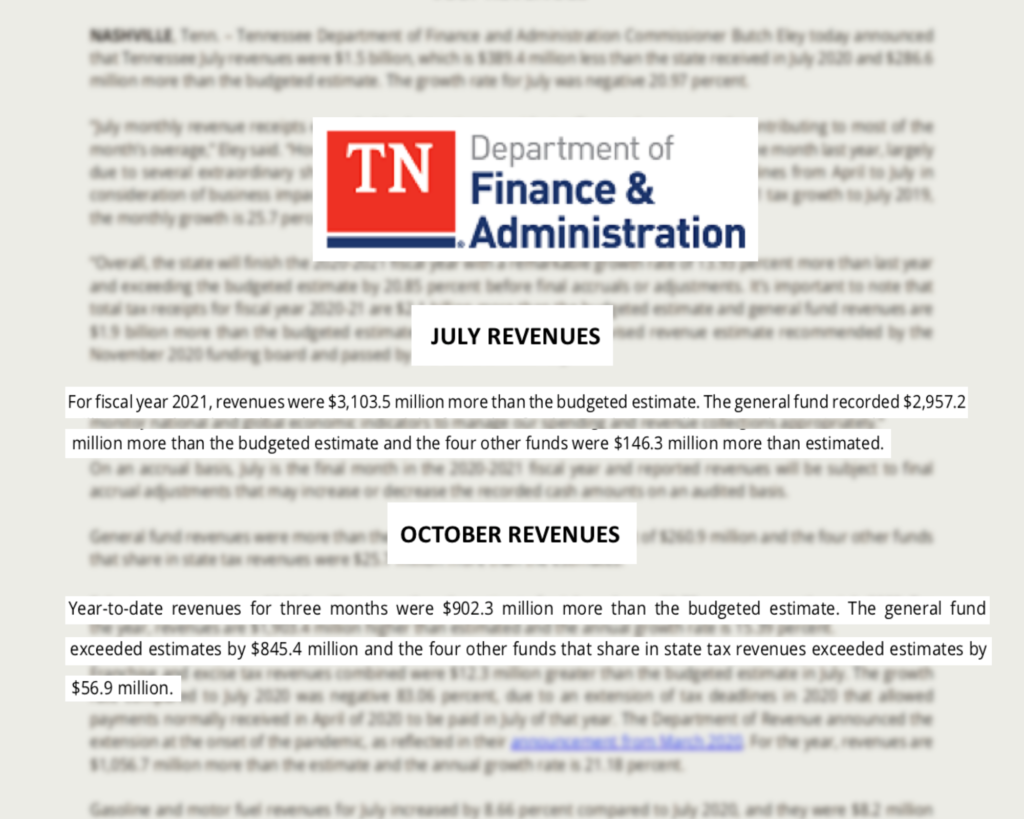
Tennessee officials have underestimated their tax revenues to the tune of $4 billion since August of 2020. And they’re poised to make another conservative projection Tuesday in the face of continued pandemic uncertainty.
The state finished out the 2021 fiscal year $3.1 billion ahead of projections and has collected more than $900 million over budget in the first three months of this fiscal year.
Here are a few ways to contextualize that enormous amount of money:
Compared to current state projects
The state could owe Tennessee State University upwards of half a billion dollars after decades of underfunding. The surplus is enough to pay that sum many times over.
$4 billion is also slightly greater than what the state government received from the American Rescue Plan. That money is heading toward expanding broadband internet access and water and sewer projects across the state.
What has the state done with previous budget surpluses?
Former Gov. Bill Haslam used a smaller surplus to “reshape” the state budget, increasing funding schools and roads.
At present Tennessee is in the middle of overhauling its education funding formula, which has been widely criticized as insufficient. And there’s a large backlog in road and bridge projects.
Under Haslam, the state also made additional contributions to the its “rainy day” fund. That’s a common practice to cover potential shortfalls in the future.
On an individual level
To put $4 billion into more human terms, the surplus is enough that the state could write you — and every other resident — a check for nearly $580 — or, with the holidays approaching, buy everybody a new Xbox or PlayStation 5. (Spoiler alert: this is not going to happen.) That’s also nearly as much as the third round of federal stimulus checks that hit early this year.
Why it matters
Whatever state officials decide will help shape the budget year that starts next summer. Previous conservative estimates resulted in the massive surpluses we’ve seen during the pandemic. But experts say the growth is unsustainable (and has largely to do with a new law that collects taxes on online retail sales). With big concerns surrounding the long-term impacts of inflation and a still-recovering workforce participation rate, economists say their projections this year are more uncertain than usual.
The Comptroller of the Treasury, Jason Mumpower, said at the conclusion of presentations, “Less certainty, in my opinion, calls for conservatism.”
The state funding board will adopt their revenue projections for FY23 in a meeting Tuesday at 2 p.m. In the meantime, state lawmakers could also adjust spending for the rest of this year during the next session.

